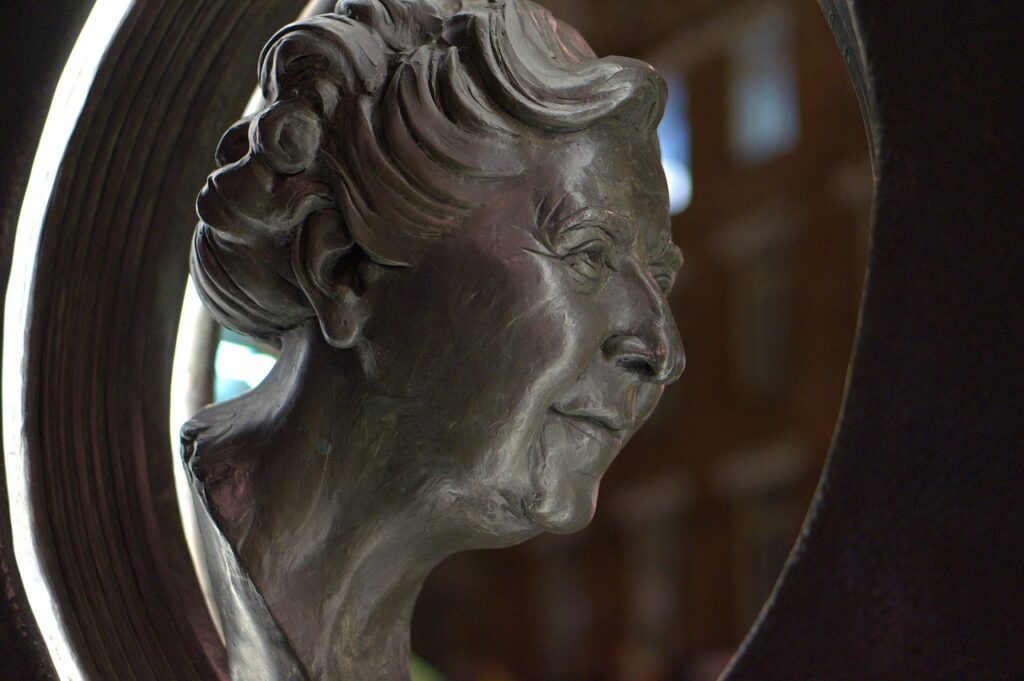By Lara Sahagun
It started with a dare. A simple dare, asked of by her sister Madge, who was herself an amateur writer. Agatha complied, and with the support of her sister, attempted to publish it six times, to no avail. Finally, she managed to get it out — and so began the odyssey of one of the world’s most cherished writers.
Agatha Christie debuted with The Mysterious Affair At Styles, written amidst World War 1, in which Christie served as a nurse and had access to a pharmacy’s worth of medicine, pain-killers, and poison. It was with the knowledge amassed from her war days that Christie rose above other crime writers in both quality of writing and accuracy — so much so that she received a rapturous review for her first book by none other than a pharmaceutical company! The Mysterious Affair At Styles introduced Hercule Poirot — “the world’s greatest detective”, as he liked to call himself — to the world, and for that we are the better, because he truly was the best, beating Sherlock Holmes by as many miles as it would take to cross time and thank Christie for her work. Poirot journeyed across 37 novels, solving mysteries ranging from apartment-murders (“The Third-Floor Flat”) to homicides long-gone for fifteen years (“Murder In Retrospect / Five Little Pigs”). He liked to say that he saw not from his eyes, but by the little grey cells of his mind, and once you seek to find the truth within your little grey cells, you began to see clearly.
“My name is Hercule Poirot, and I am probably the greatest detective in the world.”
-Hercule Poirot, The Mystery of the Blue Train
Poirot was infamous among criminals for his skill as a detective, and infamous among the high London class for his persona — a tidy and bald little man with an egg-shaped head who made up for his lack of locks with his grandiose mustache, always perfectly preened and as arrogant as he was. To double down on his already-“foreign” appearance, Poirot was Belgian, and didn’t blend easily in the British crowds. Throughout his journeys, he often faced racism and microaggressions (such as repeatedly being called French), yet he always came back with retorts which either insulted the other’s intelligence or insulted the other person altogether. He was described throughout his life as many things — including, but not limited to, “a funny little man”, “a great detective”, and a perfectionist — but nothing could amount to the fact that he was Hercule Poirot; he was all and none of what others called him; and all he was and wasn’t was the greatest detective of all time. “The little grey cells” were his invention and his mantra; and much in the Sherlock-fashion, he had a sidekick who documented his companion’s travels — Hastings, a soldier who was a British Army Officer in World War I (when the mystery series is set). He was retired due to an injury, and sent to London to recuperate, where he met Poirot. He and Poirot weren’t the only reoccurring characters in Christie’s novels; she created a female detective, Miss Marple, who almost rivaled Poirot in fame, but her style was entirely different; she didn’t use logic, but rather pieces of her memory and past experiences to solve a mystery. Besides Miss Marple, several other characters stand out: Miss Lemon (a secretary), Miss Ariadne Oliver (a writer who eerily resembles Agatha Christie), Miss Vera Rossakoff (an heiress and potential love interest of Poirot’s — it was hinted at that he gave her flowers in The Labors of Hercules: The Capture of Cerberus), and finally, Colonel Race, a colonel of the British Army whom Poirot encountered in both Death On The Nile and Cards On The Table.
Agatha Christie started her first novel on a dare; she finished with over sixty published works, widespread across the globe, a record of selling more books than anyone other than Shakespeare and the Bible, and the fame and fortune amassed with that fact. Hercule Poirot was so beautifully written that when he passed in the final stage of his thirty-seven book-long odyssey, Curtain, the New York Times wrote their only obituary ever made for a fictional character in dedication to him. His mustache, his cells, his personality — even the ghost of a smile still etched onto the words of his stories — they remain imprinted onto our minds, and as does Christie’s collection of books so wonderful it’s heart-wrenching to know that they end.
Agatha Christie | September 15, 1890 – January 12, 1976
Citations:
- https://www.breakingcharacter.com/home/2019/9/6/ten-things-you-didnt-know-about-agatha-christie
- https://www.agathachristie.com/news/2018/eight-quotes-from-hercule-poirot
- https://www.agathachristie.com/about-christie
- Image Credit: by gspstudio / 2 images, Pixabay (free for commercial use)


